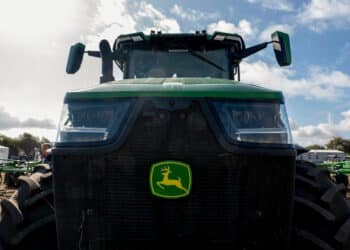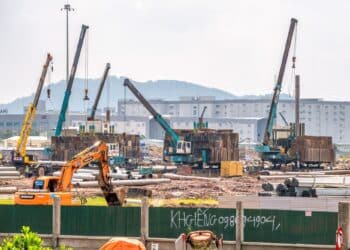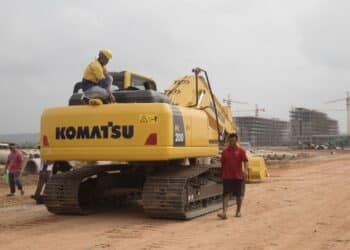As the fallout of the failed Doosan Bobcat–Doosan Robotics merger continues, both companies’ stock prices remain down and a problem for investors.
The demise of the deal saw Doosan Bobcat’s share price temporarily spike 20%. The shares closed today at 40,850 won ($30.54) on the Seoul stock exchange, down more than 25% from the July 11 merger announcement.
“The fundamentals of Doosan Bobcat remain sound and the valuation multiples are low,” Douglas Kim, Korean and Asian stock expert and chief executive at Douglas Research Advisory, told Equipment Finance News. “Nonetheless, there are some increasing concerns about the overall construction sector outlook in the United States, which could negatively impact Doosan Bobcat’s construction equipment business.”
Doosan Robotics shares also continue to be affected by the failed merger, Kim said.
“The merger cancellation should have a negative impact on Doosan Robotics since it would not be able to become 100% shareholder of Doosan Bobcat at such low valuations, capitalizing on Doosan Robotics’ extremely high valuation multiples,” Kim said. “Even with its share price down 19% [as of Sept. 6] from the initial merger announcement, we would not be buyers at current levels due to valuations that still remain very high along with disappointing recent earnings.”
Shares of Doosan Robotics have since dropped further to $50, down 36.8% since the merger announcement and down 5.1% since the announcement ending current merger talks.

Shareholder concerns with Bobcat-Robotics merger
Bobcat is the world’s 10th–largest construction company by sales with a 2.9% share of global construction equipment sales, according to the 2024 Yellow Table published by KHL Group. The size of Bobcat makes it attractive for long-term investors, Kim said.
“Doosan Bobcat’s shareholders tend to be long-term investors who value the company’s consistent record of generating high levels of cash flow,” he said. “They also believe Doosan Bobcat is one of the premier global manufacturers of farm and construction equipment.”
Between July 12 and July 23, foreign investors sold$142 million worth of Doosan Bobcat shares, which represented the third-largest foreign sell-off during the period, Kim said.
Though Doosan Bobcat’s shares performed nicely after the deal was announced, the sale of shares by foreigners suggests dissatisfaction with the deal, he said, adding that those investors would likely oppose another attempt at a deal.
Doosan Enerbility concerns
Doosan Enerbility, parent company of Doosan Bobcat, also faced potential problems had the deal gone through, Kim said.
“Another major issue to consider is that there could also be many minority shareholders of Doosan Enerbility that do not support this deal as they would no longer control the jewel and cash flow generating machine [in] Doosan Bobcat,” he said. “Doosan Enerbility’s shares declined by 4.4% to [$15.65] following this deal announcement.”
Editor’s note: All amounts have been converted to U.S. dollars.
Visit the Equipment Finance News Lender Directory here. The directory lists banks, captives and independent lenders. Lenders are invited to add and update their own company details to the directory to provide dealers with the most up-to-date information available.









